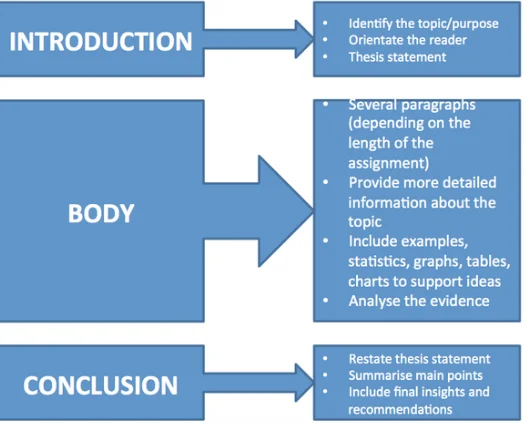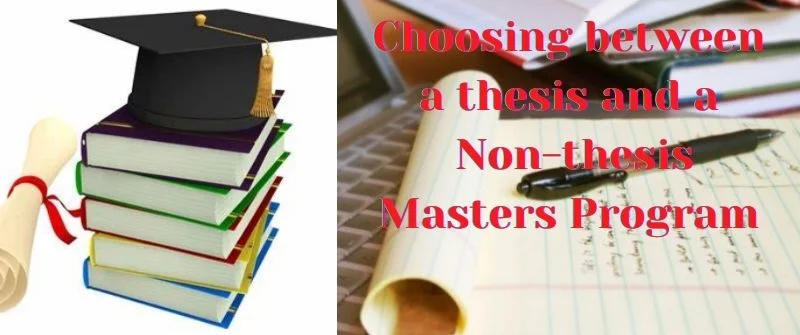A non-thesis masters is the type of degree that consists of classroom-based studies only. It has a set of core subjects for every semester. Also, the faculty expects you to do a bit of research and writing.
A non-thesis version is for you to enjoy learning about different fields or being a generalist. The course structure focus on laying the ground for creativity, teamwork, leadership skills, and a professional career.
Is a Non-Thesis Masters Worth it?
A non-thesis masters program is worth it because it offers a convenient program that allows one to concentrate more on classwork and tens of hours in doing research. Generally, A non-thesis master’s degree can offer you enough background to enable you to excel by avoiding a lot of technical research.

When you are doing a non-thesis option, you will not go through an oral defense.
In this case, you have to take an additional class to compensate for the time to do you would do in the thesis.
The decision to do or not to do a thesis resists with an individual student. As a learner, you should consider various perspectives before making a final decision.
You can talk to your seniors for further guidance. Also, you can make a decision when you are not good at research or you fear failing a thesis and you want to avoid it altogether.
Is a Thesis Master’s Worth It
A thesis master’s is worth it because it gives a student the opportunity to carry an original piece that enables him or her to carry deep primary research, analyze collected data, and present concrete support prove the hypothesis.
It also allows students to dig into the topic and create an expanded document where they will demonstrate their knowledge throughout the degree program.
When working on such a document, you need to perform independent research from secondary and primary sources. Depending on the subject, you may use surveys or interviews to support your argument.
Some specific departments or schools will determine the length of the document. The standard range is from 40 to 100 pages. Every master’s student gets a faculty advisor to provide support.
Before picking your thesis topic, you do not require a magical formula. One should exploit the area of interest and read widely.
Which is better; Thesis or Non-Thesis Masters

When you are weighing between the two options, know that any decisions will be relevant as long as you understand the limits of each option.
For instance, a non-thesis master’s does not imply that it lacks challenging coursework. It only means that there is another approach to handle it.
There is no better degree than the other between a thesis and a non-thesis master’s degree because each choice depends on one’s career goals.
Both degrees carry equal weight in terms of qualification and academic writing ability. Also, each degree option fulfills an equally different academic satisfaction based the discipline of study.
For example, a thesis program is a heavy research discipline. When you complete a thesis, you will demonstrate to the employers that you have the needed skills for writing long-form reports or researching.
On the contrary, if you want to complete your course using less time to complete, then a non-thesis program fits you. That is because it does not need a specific written product.
Times when Thesis Masters is Better
There are situations when a thesis master’s can have more weight than the non-thesis master’s. If you are still debating on the two issues, you can use the following insight to decide the type of program that suits you.
1. Boosts you Employability
When you are writing a thesis, it means you have to perform extensive research. If you have superb research skills, it can be attractive to potential employers.
These employers know that you worked on detailed work which requires dedication and effort. Also, any researched-based employer could have a keen interest in your profile.
2. When you want to Develop Critical Skills

A thesis is a final project that is tedious and time-consuming. You will learn time management skills, development organization, and planning skills as you go for it.
Furthermore, it allows one to develop critical thinking and exceptional communicational skills.
Since you will have to defend your findings orally, it places a demand on you to learn presentation skills.
3. When you want to Pursue Interest
The thesis allows students to develop their idea and titles. As such, they have the liberty to explore in-depth research into a particular topic of research. It allows one to take a fascinating look into an area that you are passionate about.
The thesis is critical as it expands your understanding of what you can do. It will deepen your potential to carry out a research and possess the skills of making connections between ideas.
4. Guide your Steps
A thesis will guide your steps to understand the next move. Suppose you decide to pursue your research interests within the thesis; you can discover an item that you need to follow further.
Furthermore, when you write a successful thesis, the chance of getting it published is high. You only have to submit it to various academic journals.
If you hope to pursue a Ph.D., you stand a great chance with the admission panel if you did a thesis during the master’s program.
Instances When Non-Thesis Masters is Better
Non-thesis masters can be helpful to students for particular reasons. This section offers insight that will become helpful if you prefer to take it in the university.
1. Quick Completion
A non-thesis master’s program takes less time than its thesis master’s program. Since one will not be doing heavy research, the course tends to be short. Instead, you will be doing more classwork without having to defend your finding on a panel orally.
If you have limited time, you can do a non-thesis program to agree with your situation. Since you have to spend more time in class, you will concentrate and complete this course at the right time.
2. Real-World Projects
A non-thesis masters is applicable as it offers students to work frequently with the faculty’s real-world projects. The reason behind that is one does not have to spend hundreds of hours writing or researching.
3. Mirrors a Bachelor’s Program
The non-thesis masters mirrors the bachelor’s degree in terms of structure. It is a unique program that enables learners to complete classes and take exams wihout doing outstanding research or writing.
Any student who excels in these project-based assignments has an opportunity to proceed in building the skills in the same arena.
Components of a Master’s Thesis
1. Introduction
The introduction is the first section that the reader encounters after the table of contents. This part enables the audience to know what the author wants to accomplish. We also refer to this section as a research question.
You should use this introduction to indicate the paper’s goals. Ensure you write professionally to enable readers who are not in the same field to understand.

2. Review of literature
It is a part where the author will showcase deep knowledge in specialization by offering context within the chosen discipline.
It reviews the main bodies of the research by highlighting any issue that comes up.
This is the part that largely determines both the length of your thesis and also the time taken to write a dissertation from start to finish. This is a key part of the direction and length of your project.
3. Methods
Students will have to explain how kind of method they used to get facts. For instance, a scientist may use a particular approach to arrive at a conclusion.
Historians may be using references to inject light into the topic. You should explain the process you used to get your findings.
4. Results
It is a part where students indicate what they discovered after researching in an unbiased way. Here, a learner should state what he gathered using a particular framework. Furthermore, the learner should arrange the findings in a readable fashion.
5. Discussion
The discussion part is necessary for the learner to interpret the raw data. It is where he will demonstrate how the research brought a new perspective to the field. It relates to the introduction since you have to answer the question you posed.

